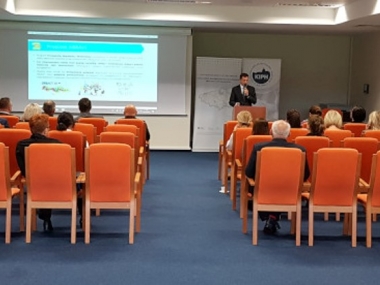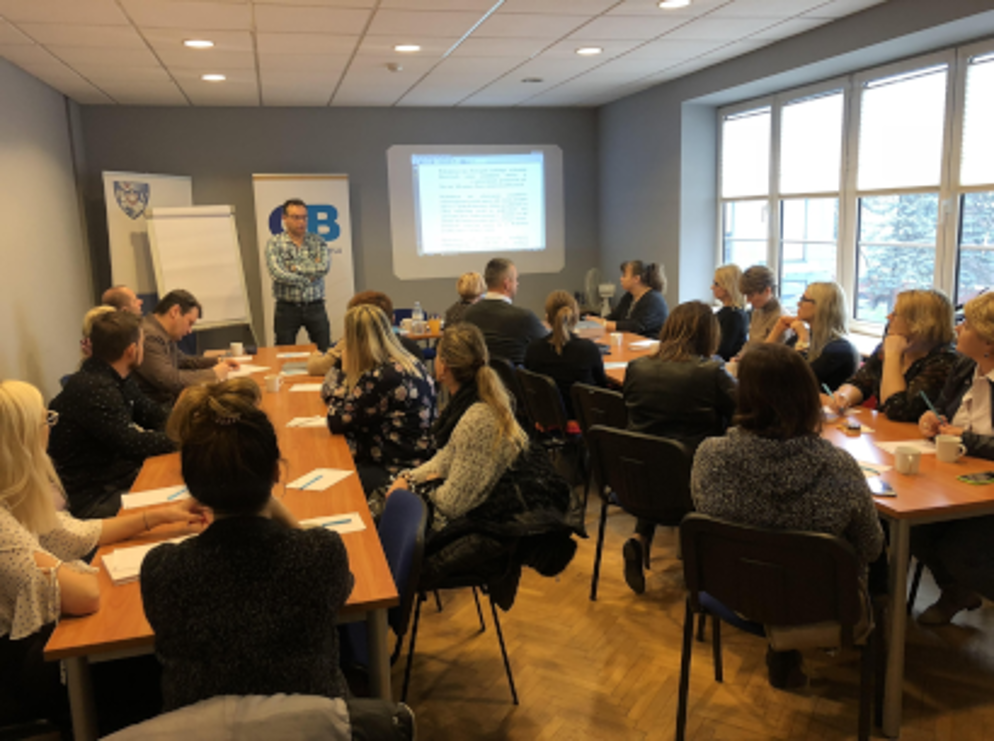Spend Analysis as a tool for better use of resources in times of crisis.
Edited on
08 October 2020At the start of 2020, the finances of many Polish local councils were in a difficult condition due to the need to incur large investment expenditures, because of an underestimation of the costs of the delivery of public services commissioned, such as education, or losses in the revenues of municipalities resulting from central government tax reforms. The Covid-19 pandemic has exacerbated these problems because the method adopted to combat the virus, which consists in the economic lockdown, led to a serious recession.
The times of crisis force us to look more closely at our spend and internal resources, and to seek ways of increasing their benefits to the economy and society. One such tool is the public spend analysis according to the methodology of the City of Preston, implemented after the global financial crisis. An effective implementation of this good practice requires cooperation between all the parties involved in the process, both procurers and entrepreneurs.

The institution of the local government that was restored in Poland 30 years ago, in 1990, has proved to be a great success. There has been three decades of enormous joint work of residents and local leaders in Polish regions, cities and villages, one that has resulted in a qualitative leap in civilisation on an unprecedented scale in the history of the state.
Local governments’ finances are a fundamental issue. It is cities and municipalities that carry out most of public tasks that determine the quality of life, access to social services, culture, education and infrastructure. Local government entities are also responsible for the majority of public investments implemented in Poland, so their activity in this area has a direct impact on the economic situation of the country.
One of the greatest challenges facing Polish cities today is their deteriorating budgetary situation. Local governments are chronically underfunded, carrying out many tasks commissioned by the central government, such as education, for which they receive insufficient subsidies. In addition to this, recent government tax reforms have resulted in a reduction of their own revenues.
It is in this situation that Polish cities entered the year 2020 and the crisis caused by the COVID-19 pandemic. The method adopted to combat the virus through the economic lockdown for a few months resulted in a real financial collapse on an unprecedented scale, on that is still difficult to estimate.
In times of crisis and reduced public revenue, there is a need to cut any expenditure possible. If everyone around starts to economise and tighten their belts (“austerity policy”), this will generally cause the economy to fall further into decline, until it reaches the bottom and comes out of it laboriously. In these circumstances, this good practice was initiated in the UK by Preston to analyse their public spend in order to make better use of the resources available.
Owing to the good practice of the spend analysis in Koszalin, which was transferred from the City of Preston, we became acquainted with the structure of our spend, and we know where it goes to. This will make it possible to plan any necessary restrictions in a more “intelligent” manner and, in the first place, to reduce or postpone this possible spend, of which we know that it is coming out of the City, because it is, for example, completely out of reach for the local business base, or it brings the least economic and social added value. When the City cooperates with other key public entities in this area, it may bring about a significant synergy effect and support the economy at the most difficult moment, while increasing its resilience.
The fatal consequences of the recession always include increasing social and economic inequalities, a lack of sufficient jobs and a deterioration in the quality and conditions of employment available. This is therefore the best time and a stimulus to consider increasing the added value obtained from spend related to public procurement: above all, social benefits, so that, even in the case of spend going to external bodies that are not interested in the City’s development, some of these procurements contribute to creating new jobs in the local economy and improving the skills of workers, particularly in groups at risk of social exclusion.

It is true that Poland, including Koszalin, does not yet have a lot of experience in this area, as our public procurement system used to be based on the lowest price criterion for a long time, and the difficult, sensitive and meticulously regulated sphere of public procurement did not encourage an introduction of any new solutions. We therefore started by increasing the skills of public procurers through training as well as analyses of those case studies and good practice in Europe which are adaptable in our country. Participation in the “Making Spend Matter” Network is an excellent opportunity to do so, as we may draw on the experience of our Partners, and the Cities of Preston and Pamplona in particular.
What we have managed to do so far is, above all, to draw the attention of local business as to how large the market is and what opportunities public procurement offers; we have diagnosed the challenges of local entrepreneurs in accessing this market, and now we offer trainings to increase their competences in the area of an effective participation in public procurement procedures. We also possess a database of local companies which can be used by public procurers, and which will be supplemented and expanded.
The Koszalin SME environment is characterised by great integration and cooperation, as well as local economic patriotism and a desire to build a strong local urban brand. This is evidenced by such environmental initiatives as the “Made in Koszalin” Group and a distinction by the Foundation of the Centre for Innovation and Entrepreneurship, as well as the “Koszalin Denar” prize that has been awarded for almost 20 years now by the Koszalin Chamber of Commerce and Industry, and the “Buy in Koszalin” initiative. The "Making Spend Matter" Project aimed at supporting the resilience of the economy and local community through public procurement fits this context perfectly.
Article by: Adam Sawicki, Municipality of Koszalin
Photos included in the article:
- Nothing appeals to entrepreneurs more than the examples of other entrepreneurs who have been successfully participating in the public procurement market for years, and have thus developed their businesses (Conference, October 2019).
- Trainings help entrepreneurs go through complex public procurement procedures (Training, November 2019).
 Submitted by Alison Taylor on
Submitted by Alison Taylor on
